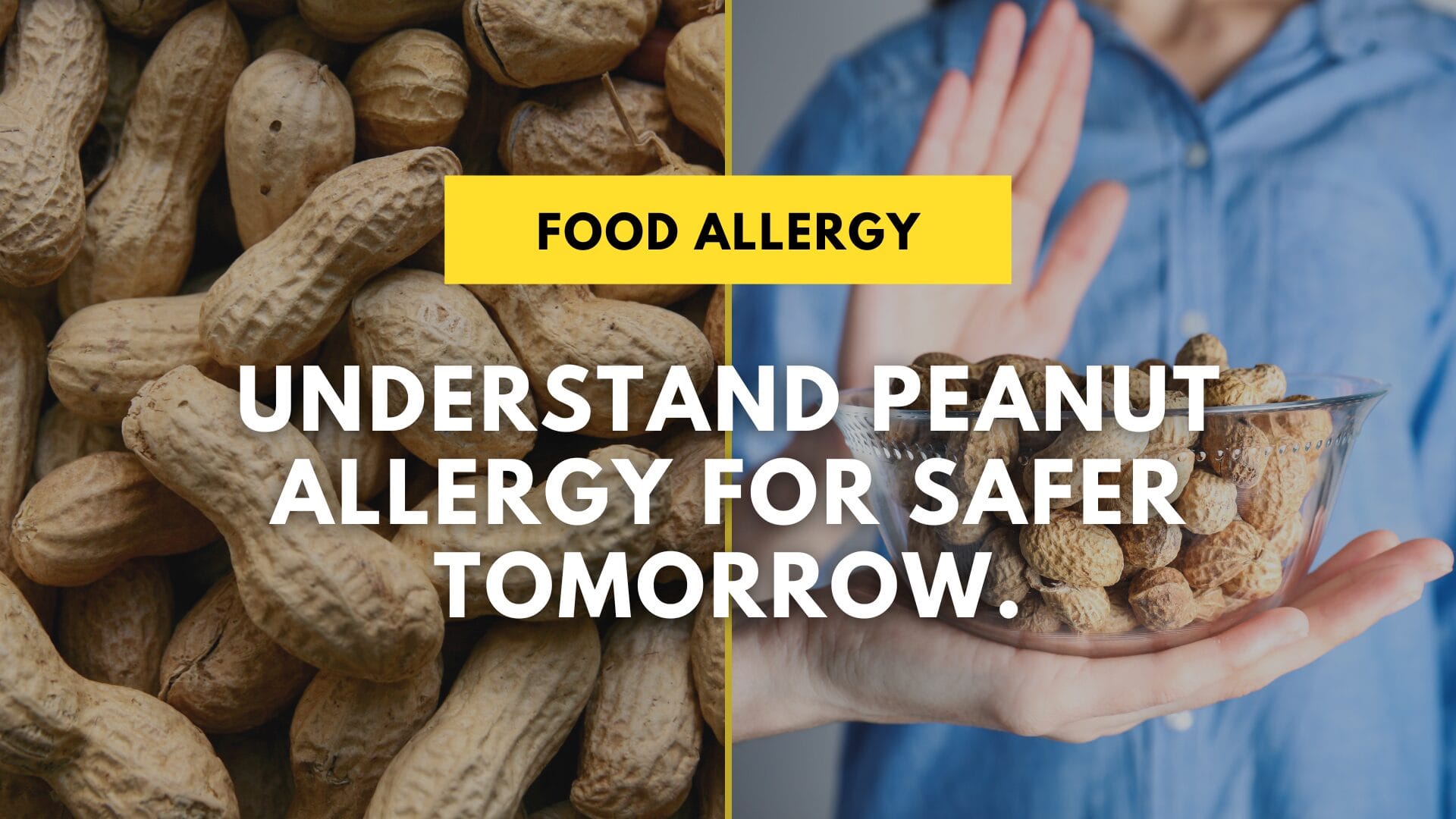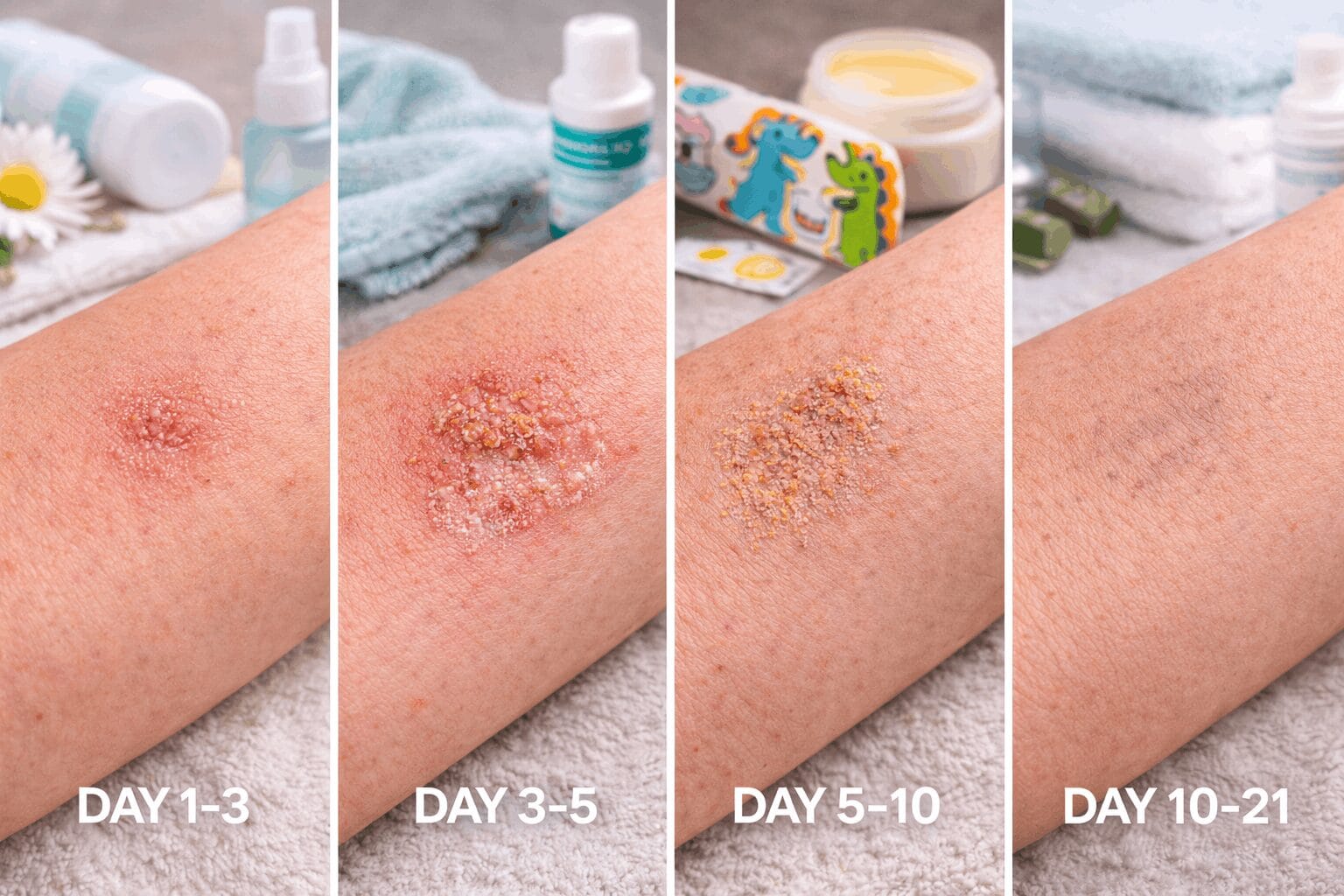Peanut allergies have become one of the most common and concerning food allergies in recent years. A peanut allergy occurs when the immune system mistakenly identifies proteins in peanuts as harmful, triggering a range of symptoms. But what exactly causes this allergy, and how can we manage it effectively? In this blog, we will explore everything from symptoms and causes to treatment options, helping you navigate this challenging condition. Our goal is to ensure you feel informed and confident in managing peanut allergies.
When does peanut allergy occur?
A peanut allergy occurs when your immune system reacts abnormally to peanuts, treating them as harmful invaders. This immune response can cause a range of symptoms, from mild to severe, depending on the person’s sensitivity.

It’s essential to understand that peanut allergies are different from other types of food allergies, as peanuts are legumes but are categorized as nuts in terms of allergy risks.
What causes peanut allergies?
What exactly causes peanut allergies in people is not yet known, however, they are thought to develop due to both genetic and environmental factors. If you have a family history of allergies or asthma, you may be at a higher risk of developing a peanut allergy. However, factors like changes in diet, hygiene, and the timing of introducing peanuts into a child’s diet may influence the risk of developing a peanut allergy.
Can you develop a peanut allergy later in life?
While peanut allergies are most commonly diagnosed in childhood, they can develop at any age. In fact, many adults report developing a peanut allergy later in life, even if they had previously eaten peanuts without issues. This is why it’s crucial to be aware of the symptoms and seek advice from an allergy specialist if you notice any unusual reactions after eating peanuts or peanut products.
How common are peanut allergies?
It is estimated that approximately 1-2% of the population of Western nations experience peanut allergy symptoms, with the number rising in recent years. The prevalence of peanut allergies can vary by region, but it is one of the most common food allergies worldwide.
Are peanut allergies genetic?
Yes, genetics play an important role in the likelihood of developing a peanut allergy. If one or both parents have a history of allergies (such as hay fever, asthma, or other food allergies), the child’s risk of developing a peanut allergy increases. However, genetic predisposition alone does not guarantee that a person will develop an allergy, as environmental factors also contribute.
Why are peanut allergies so common?
Peanut allergies are more common today than in the past, but experts are still trying to pinpoint the exact reasons for this increase. It may be due to changes in lifestyle, such as improved hygiene practices, which could reduce the body’s ability to develop immunity to allergens naturally. Additionally, the introduction of peanuts into children’s diets has changed, with some experts suggesting that delayed exposure could lead to a higher risk of developing allergies.
What are some common peanut allergy symptoms?
Peanut allergies can trigger a range of symptoms, which can be mild or severe. It’s important to be aware of the signs, as they can escalate quickly.
Mild symptoms:
- • Itchy skin or hives
- • Swelling of the lips, face, or eyes
- • Stomach cramps or nausea
- • Itchy or tingling sensation in the mouth
Severe symptoms:
- • Difficulty breathing or wheezing
- • Swelling of the throat or tongue
- • Dizziness or fainting
- • Anaphylaxis
How long does a peanut allergy reaction last?
The duration of a peanut allergy reaction depends on the severity. Mild reactions can subside within a few hours after treatment, while severe reactions, such as anaphylaxis, require immediate intervention with epinephrine and may take longer to resolve. Always seek medical attention if you experience any symptoms of an allergic reaction after eating peanuts.
Can people with peanut allergies eat peanut oil?
It depends on the type of peanut oil. Refined peanut oil is generally considered safe for people with peanut allergies, as the refining process removes most of the proteins that trigger allergic reactions. However, unrefined or cold-pressed peanut oil can still contain these proteins and should be avoided. In any case, it’s always best to consult with the doctor before consuming it.
Can you lose peanut allergy?
While some food allergies can be outgrown, peanut allergies are usually lifelong. However, research suggests that some people may experience a reduction in sensitivity over time. This doesn’t mean they can completely lose the allergy, but with careful management, the reactions may become less severe. Consulting with an allergist or immunologist is essential to monitor any changes in your condition.
Can you outgrow a peanut allergy?
While it is rare, some children may outgrow their peanut allergy as they get older. However, this should only be determined by an allergy specialist. If you are considering introducing peanuts to a child who has previously been allergic, it is crucial to do so under medical supervision.
How long does peanut allergy last?
A peanut allergy can last a lifetime. However, it’s important to note that allergy symptoms may vary in severity over time. With proper management, many individuals can lead a full and active life, but avoiding peanuts and being prepared with emergency medication is key.
Can you prevent a peanut allergy?
There is no surefire way to prevent a peanut allergy, but there are steps you can take to reduce the risk. Introducing peanuts into a baby’s diet at the right time (under the guidance of a pediatrician) can potentially lower the risk of developing an allergy. For those with a family history of allergies, it’s especially important to consult with an allergist for advice on the best course of action.
When did peanut allergies start?
While peanut allergies and their symptoms have been documented for decades, they have become more prevalent in recent years.

It’s difficult to pinpoint exactly when peanut allergies started to rise in numbers, but the increase correlates with changes in diet and environmental factors.
Conclusion
Peanut allergies can be life-changing, but with the right knowledge and management, they don’t have to control your life. Whether you’re concerned about mild symptoms or more severe reactions, understanding peanut allergies is the first step toward effective management. If you or a loved one is experiencing symptoms of a peanut allergy, it’s crucial to consult an allergy specialist who can help guide you on treatment and prevention strategies. Remember, care for yourself and your loved ones; we’re here to help.





